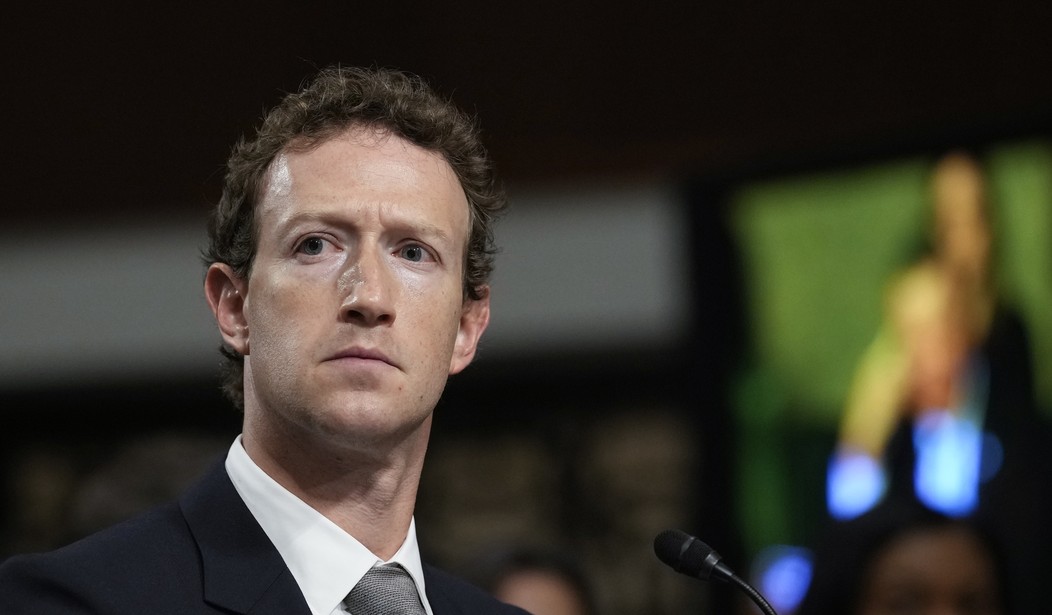Meta founder, chairman, and CEO Mark Zuckerberg recently wrote a letter to Rep. Jim Jordan (R-OH), chairman of the House of Representatives Judiciary Committee, fully admitting and highlighting the coordination between the federal government and the social media platform regarding the censorship of speech.
For years, Americans have witnessed clear examples of censorship of their friends, family, and political officials on social media platforms. The apex of such censorship occurred during the COVID-19 pandemic, running parallel with the deplatforming of President Donald Trump.
At that time, anyone who claimed that certain views or thoughts were selectively removed from social media would have been called a conspiracy theorist – and yet, now we know those “conspiracies” are corroborated.
The most recent confirmation comes from Mark Zuckerberg’s letter to Congress detailing how senior Biden administration officials “repeatedly pressured” social media platforms to remove and censor content related to the COVID-19 pandemic.
Specifically, Zuckerberg notes, “In 2021, senior officials from the Biden Administration, including the White House, repeatedly pressured our teams for months to censor certain COVID-19 content, including humor and satire, and expressed a lot of frustration with our teams when we didn’t agree.”
Zuckerberg also admitted to censoring the Hunter Biden laptop story ahead of the 2020 election due to government pressure.
Zuckerberg says he now regrets not being more outspoken about “government pressure” from the Biden administration to “censor” speech on his platforms. He also claims that he felt strongly that Meta should not have compromised their standards due to political pestering. Yet, the partisan censorship continued in favor of the Biden administration’s requests.
The Murthy v. Missouri litigation and the Judiciary Committee’s online censorship investigation have produced documents that corroborate all of Zuckerberg’s claims, from their initial resistance to censorship demands from Biden administration officials to the eventual caving and clear politically driven censorship.
Fortunately, Zuckerberg ended his letter by declaring that Facebook is prepared to oppose future attempts by government officials to pressure the platform into making certain decisions about content moderation.
This admission from Zuckerberg is eerily similar to what we saw with the release of the Twitter Files, which also confirmed that the federal government had been working to influence the content on Twitter. The Twitter Files showcased the government’s involvement in removing COVID-19 “misinformation” on Twitter and revealed that the FBI worked in tandem with Twitter to promulgate certain narratives, and the suppression of Hunter Biden’s laptop story, leading up to the 2020 election.
What Zuckerberg's Admission to Jim Jordan on Meta's Censorship Really Means...for Democrats
Aside from the clear use of these social media platforms as political instruments to sway elections, these stories emphasize the hypocrisy of social media platforms and their claim that they are simply bulletin boards or conduits for user speech and that they maintain no editorial component.
This claim insulates these social media platforms from liability under Section 230 of the 1996 Communications Decency Act. However, it is evident that because they clearly engage in censorship, these platforms do obviously operate in an editorial capacity.
In the midst of all of this censorship, state legislators around the country attempted to take a swing at Big Tech in the name of free speech for their constituents. Since 2020, 70 bills have been introduced with this purpose in mind.
Texas and Florida legislators successfully passed online free speech bills into law that created state-based repercussions when social media platforms censor user content based on viewpoint discrimination. However, Big Tech’s lobbyists sued to stop the new laws, leading to a long legal battle that transcended all levels of courts before ultimately appearing before the United States Supreme Court.
Oral arguments for both laws were held in February before the Supreme Court ruled to return both cases back to the lower courts, noting that the social media companies failed to provide sufficient evidence for the facial challenge that they brought before the Court. Ultimately, the Court signaled that no part of either legislation was unconstitutional, which Big Tech lobbyists have been claiming for years.
All of this leaves room for these laws, and others like them, to set an important precedent for online free speech. Perhaps Mark Zuckerberg’s admission about the clear conspiracy, coupled with the Twitter files, will make the writing on the wall undeniable for Americans, lawmakers, and the courts.
Samantha Fillmore ([email protected]) is the senior state government relations manager at The Heartland Institute.













Join the conversation as a VIP Member